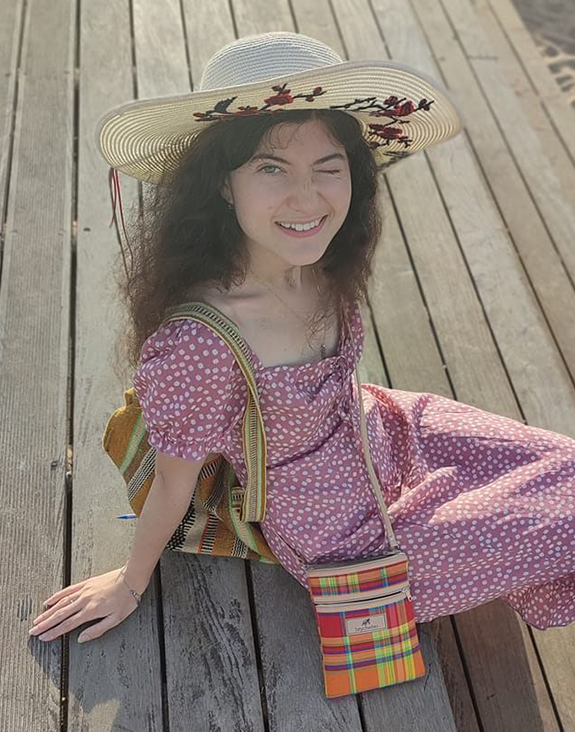Slavic Studies congratulates Victoria Buyanovskaya, who recently defended her dissertation proposal, which is titled “Re-Writing Revolution: Anarchism, Resistance, and Utopia in Kronstadt, Ukraine, and Siberia after 1917.”
We interviewed Ms. Buyanovskaya to find out more about the research topic.
What will your dissertation be about? Please give us the elevator pitch.
My dissertation aims to develop a reparative reading of the Russian revolution, which would challenge centralist perspectives and shift focus to regional experiences and alternative utopias. In other words, I intend to write a history of several local non- or anti-Bolshevik insurgencies of the early 1920s and, above all, a “regionalized” yet universalized history of revolutionary imagination. These alternatives were all violently suppressed by the Bolsheviks, but they survived through cultural representations and, above all, in literature, which also contested and amplified them. The dissertation, as I see it now, will be structured around several “alternative revolutions,” namely the Kronstadt Commune, the Makhno movement, and the West Siberian uprising. In each chapter, I plan to read literary texts against the background of non-fictional sources that document these insurrections and develop alternative theoretical visions of the revolution. The work will thus be at the intersection of the history of political ideas and literary analysis—and I am so excited to experiment with that!
How did you come to this topic?
Working with such material and using such an interdisciplinary approach is both new to me and feels like a logical next step. During my time here (and thanks to some fascinating courses I’ve taken), I became highly interested in how political theory and literary analysis might be brought together. With this particular topic, my interest—and, I would even say, my sense of moral duty—is driven by the fact that the Russian revolution ended up buried under the regime that claimed to be its natural outcome. More often than not, the revolution still appears in the light of Stalinism, and I feel like this might be countered by foregrounding a plurality of revolutionary experiences. I will try to uncover several democratic utopias from under the labels and narratives of “counter-revolution” and “banditry,” which are still quite powerful framings. I will be thus joining others in this important work of bringing to light the victims of the Red Terror—not just through their suffering, but also through their unrealized dreams, their historical agency. Last but not least, the time has come to “decolonize” the history of the revolution through shifting focus to Ukraine and other places where revolutionary imagination had been actively developing around the pockets of anti-Bolshevik resistance.
What are the next steps for you in researching and writing?
I came across some fascinating primary material related to these local insurgencies I want to write about. I plan to start with the chapter on the Kronstadt rebellion, and in this case it is memoirs, the rebels’ resolutions, but above all accounts in the local newspaper. For instance, I found the Kronstadt sailors’ poetry scattered across this newspaper to be an amazing source for studying the imagination of the uprising—it is very easy to dismiss it as “bad poetry,” and I see it as my challenge to introduce this body of working-class writing into the Kronstadt corpus. At the same time, I will be thinking about how to relate this material to the ambiguous attraction-repulsion to the Kronstadt utopia in Soviet and émigré literature written after the fall of Kronstadt. In general, after this dissertation proposal defense, I am inspired to move to the stage of writing as soon as possible, but I am also excited for doing long-term research for the first time, which already feels like building a house or something like that and also starting to live in it right away.
